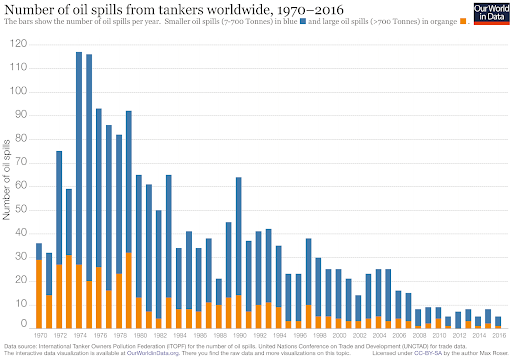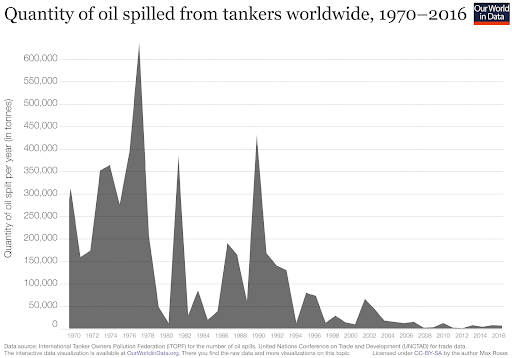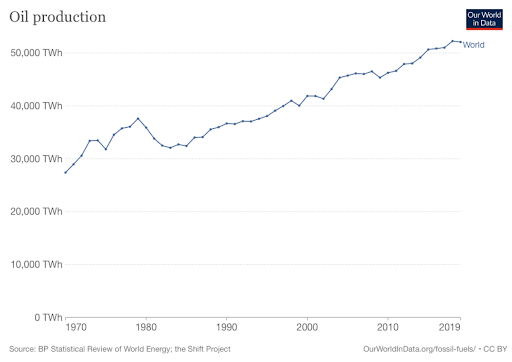There are currently several stories in the news about oil spills and their impact on the environment which have environmentalists calling for further restrictions on oil development in the U.S. and abroad. Oil spills are serious events that undoubtedly cause environmental harm, but all these stories should be understood within the context of the tremendous amount of progress we have made in limiting oil spills and their effects.
Since 1970, large oil spills (measured as > 700 tonnes of oil) from tankers decreased significantly from 24.5 oil spills per year in the 1970s to 1.7 large oil spills per years in the 2010s. Additionally, as the chart from the International Tanker Owners Pollution Federation (ITOF) also shows, medium sized oil spills (measured as 7-700 tonnes) from tankers have also decreased substantially.

This decrease in the number of oil spills has translated into a decrease in the total amount of oil spilled as well. ITOF has estimated that between 170 and 2016 about 5.73 million tonnes of oil were lost because of tanker incidents. In 2012, that number was down to 1000 tonnes. Because a single major incident can be responsible for a large share of the total oil spilled each year, it’s worth looking at the year-over-year trend in the quantity of oil spilled from tankers worldwide.
As you can see, over the past several decades there has been a huge decrease in the amount of oil spilled from tankers worldwide. What makes these numbers even more remarkable is that this decreasing trend of oil spills has come as worldwide oil production has nearly doubled and seaborne oil trade has grown immensely.
Since oil spills are often used to justify costly restrictions on the development of fossil fuels, this data should remind us that when it comes to environmental problems it is important to look at the long-term trends not just the news of the day.





